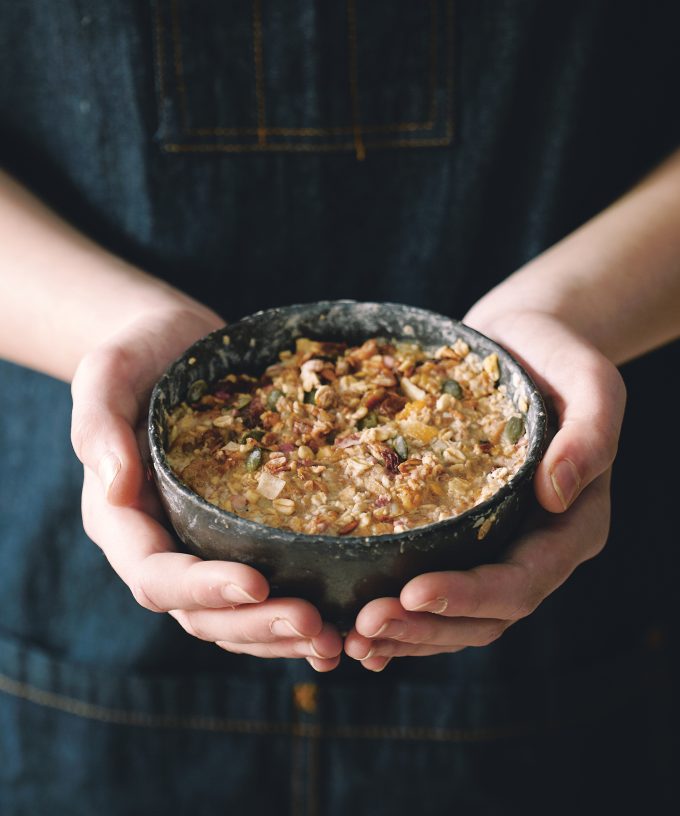 We’ve been adding porridges into our breads here at The Sourdough School for many years. All our porridge’s including The Seeds for Solidarity uses a technique that Vanessa Kimbell attributes to renowned baker Richard Hart. Richard used his skills and understanding of the structure of sourdough to develop the techniques, timings and ratios used in his now-classic porridge loaves during his time as head baker at Tartine bakery. These timings and techniques allow the addition of porridge to higher-hydration sourdough boules, creating an amazing, gelatinous crumb structure, dark crusts and an incredible flavour without compromising on volume. His porridge breads have made his approach legendary.
We’ve been adding porridges into our breads here at The Sourdough School for many years. All our porridge’s including The Seeds for Solidarity uses a technique that Vanessa Kimbell attributes to renowned baker Richard Hart. Richard used his skills and understanding of the structure of sourdough to develop the techniques, timings and ratios used in his now-classic porridge loaves during his time as head baker at Tartine bakery. These timings and techniques allow the addition of porridge to higher-hydration sourdough boules, creating an amazing, gelatinous crumb structure, dark crusts and an incredible flavour without compromising on volume. His porridge breads have made his approach legendary.
A recent study at Tufts University in Boston monitored 3,000 people in their mid-fifties and found that porridge can help prevent middle-aged spread: those who ate three servings of wholegrains per day had waist sizes two inches smaller than those who didn’t consume this amount. They also had lower blood pressure and lower sugar levels. The researchers believe that the wholegrains found in oats, as well as brown bread and brown rice, are the key to midlife weight loss, which in turn may help to protect against heart disease. The dietary fibre in wholegrains has a satiating effect, while the magnesium, potassium and antioxidants may also contribute to lowering blood pressure.
Dietary fibre is the indigestible part of the plants that we eat: there’s no fibre in meat or dairy. It falls broadly into two types, soluble and insoluble fibre. Both kinds provide bulk, which tends to make us feel fuller, so it can help with maintaining a healthy weight. Porridge is full of soluble fibre and has a beneficial effect on post-meal blood sugar spikes. The oat bran dissolves in water to make a viscous mix and, once eaten, it first passes through the small intestine, where most of the nutrients from food are absorbed intact, and then reaches the large intestine, where much of it is fermented, providing food for the all-important bacteria in your gut.
Insoluble fibre, found, for example, in wheat bran, is made mostly of cellulose, which is not broken down in the body at all. This is the part of the bread that passes straight through the gut. It speeds up processing time, which helps to protect against bowel cancer and diverticulitis.




